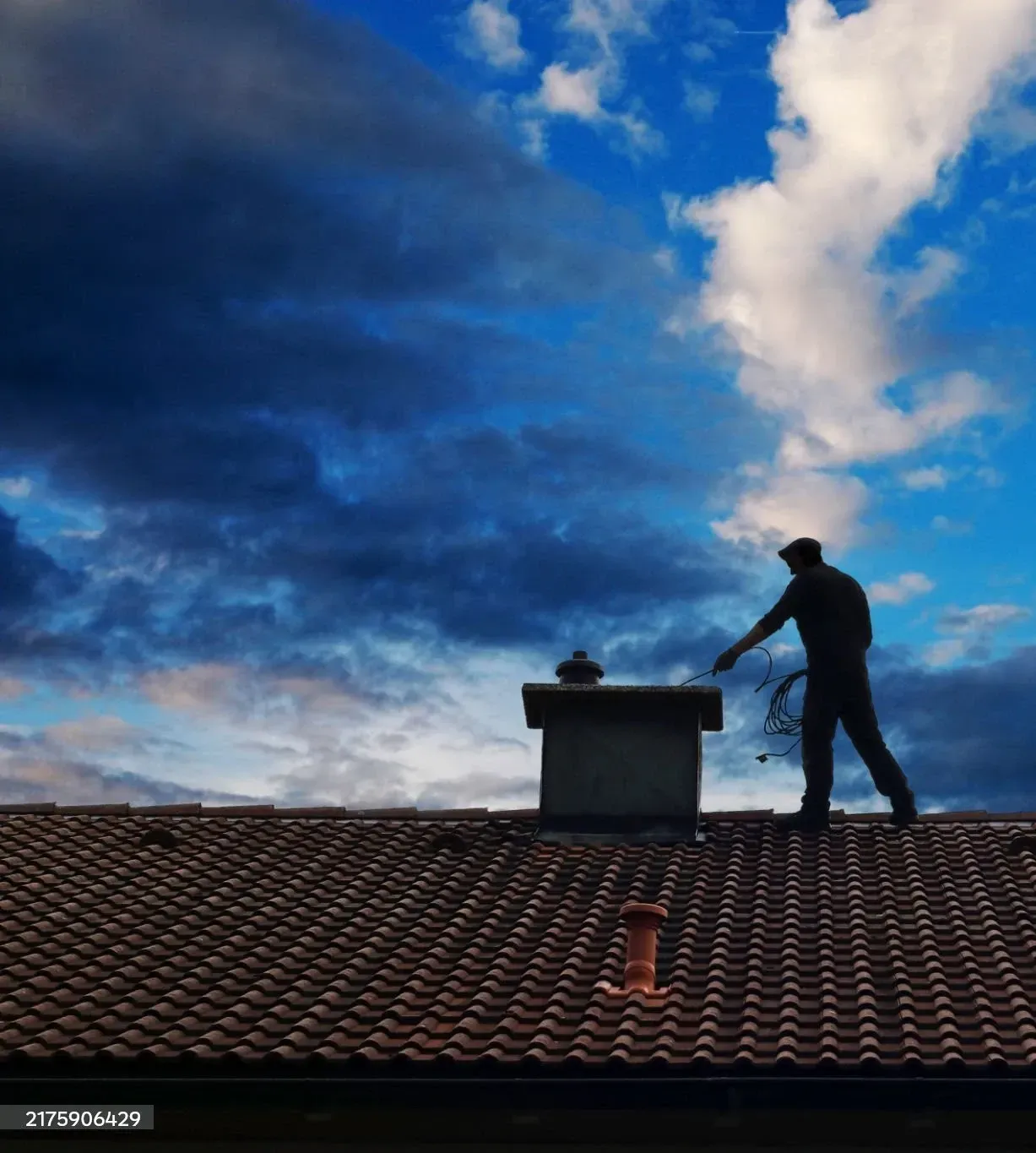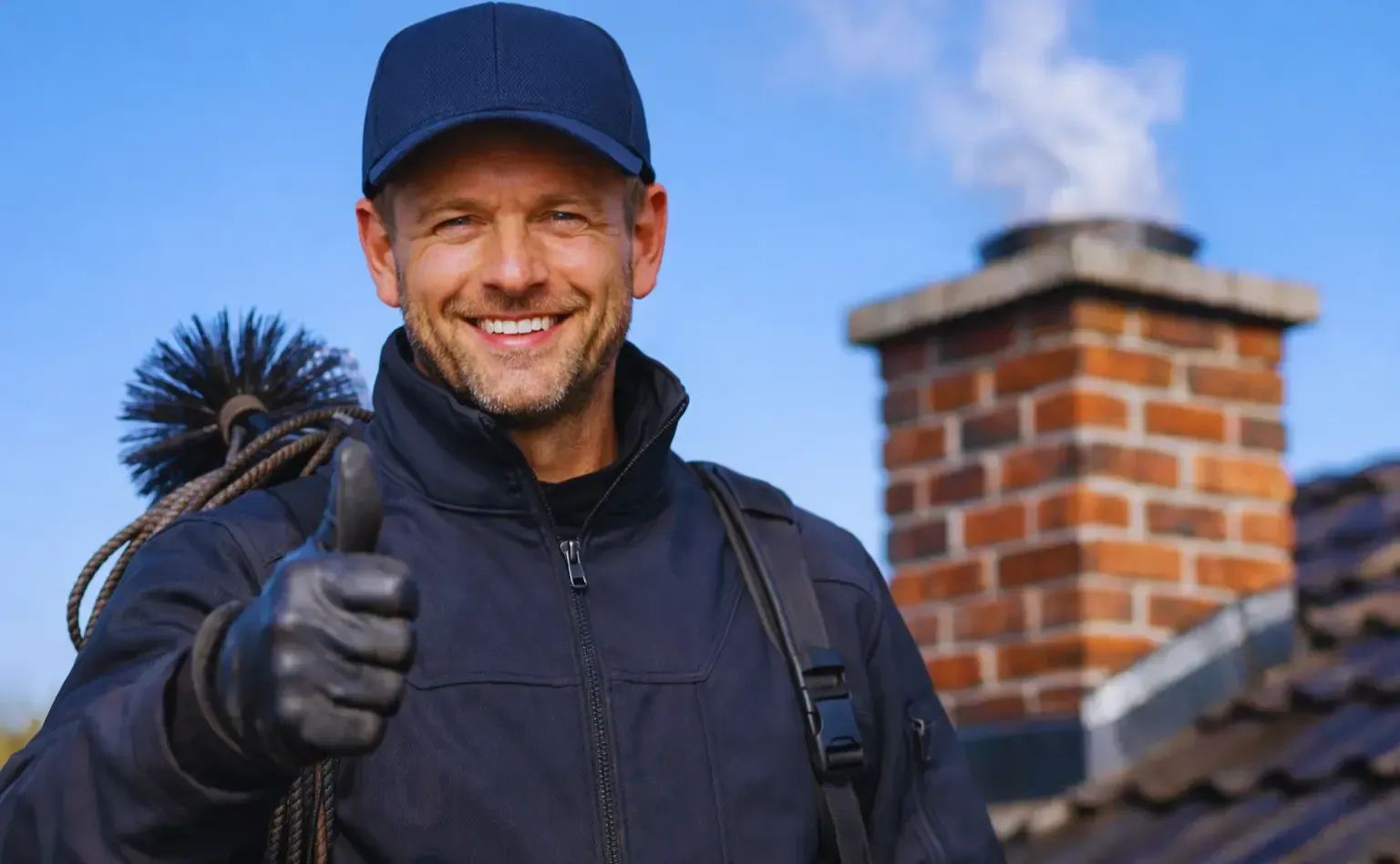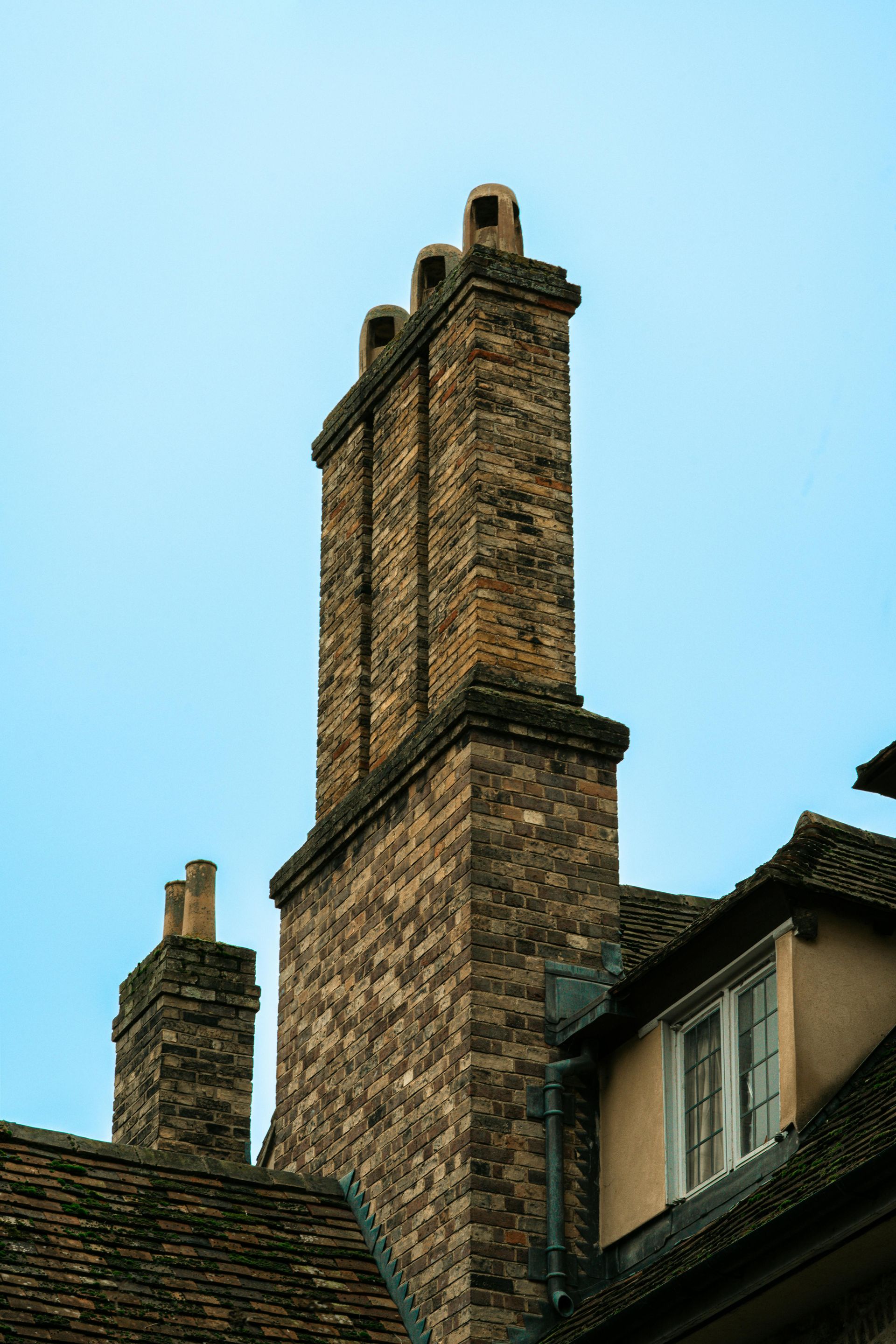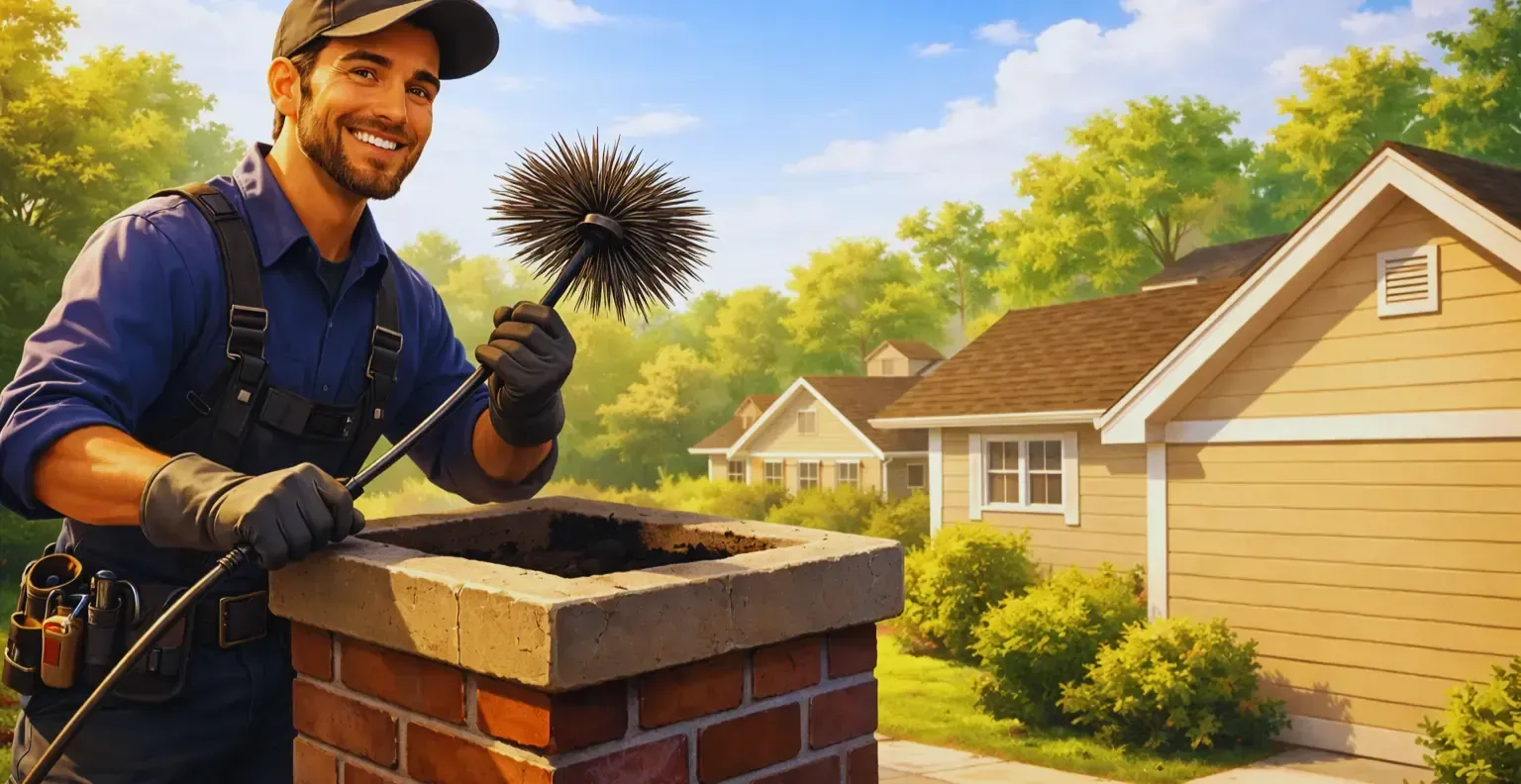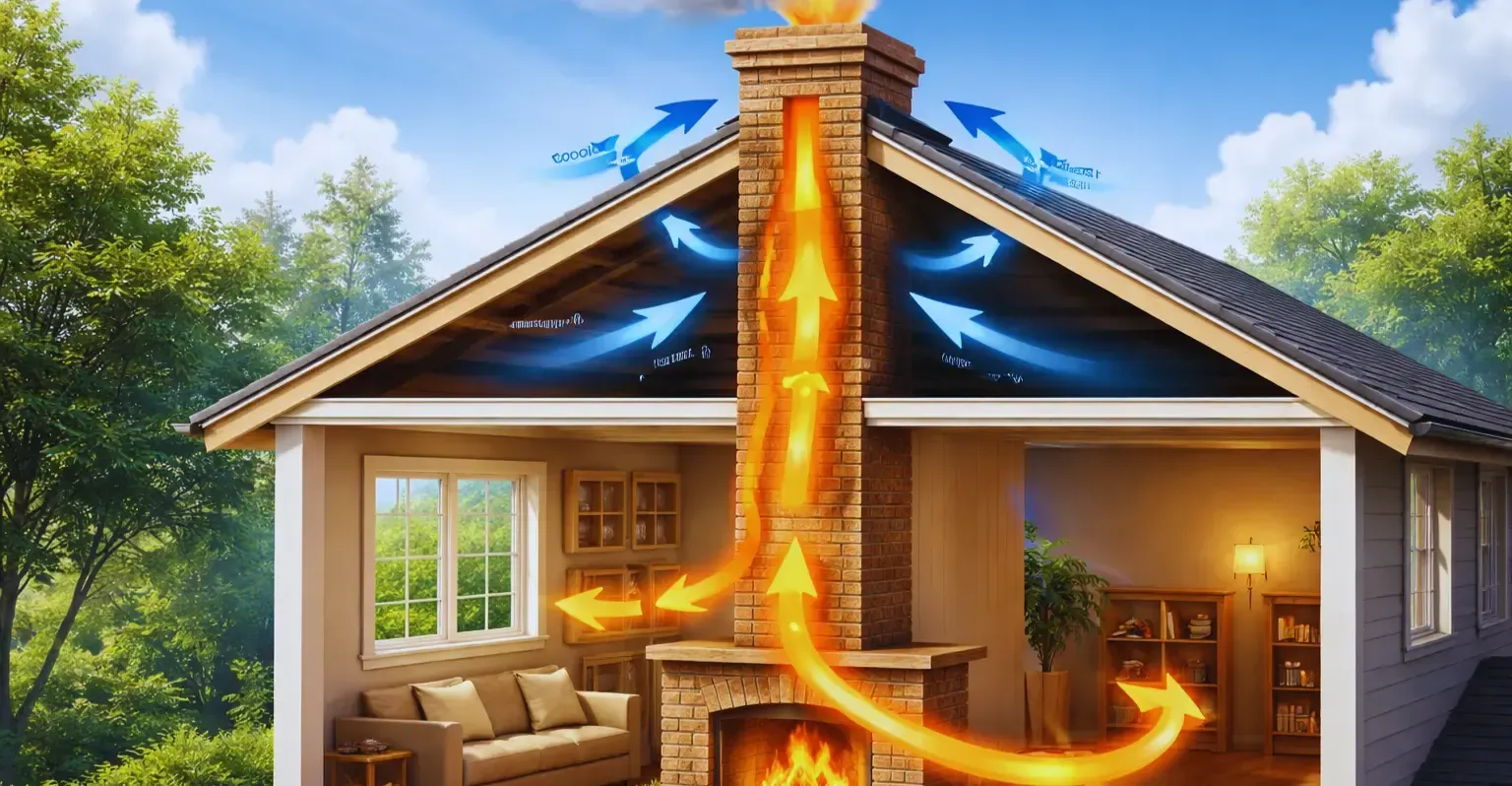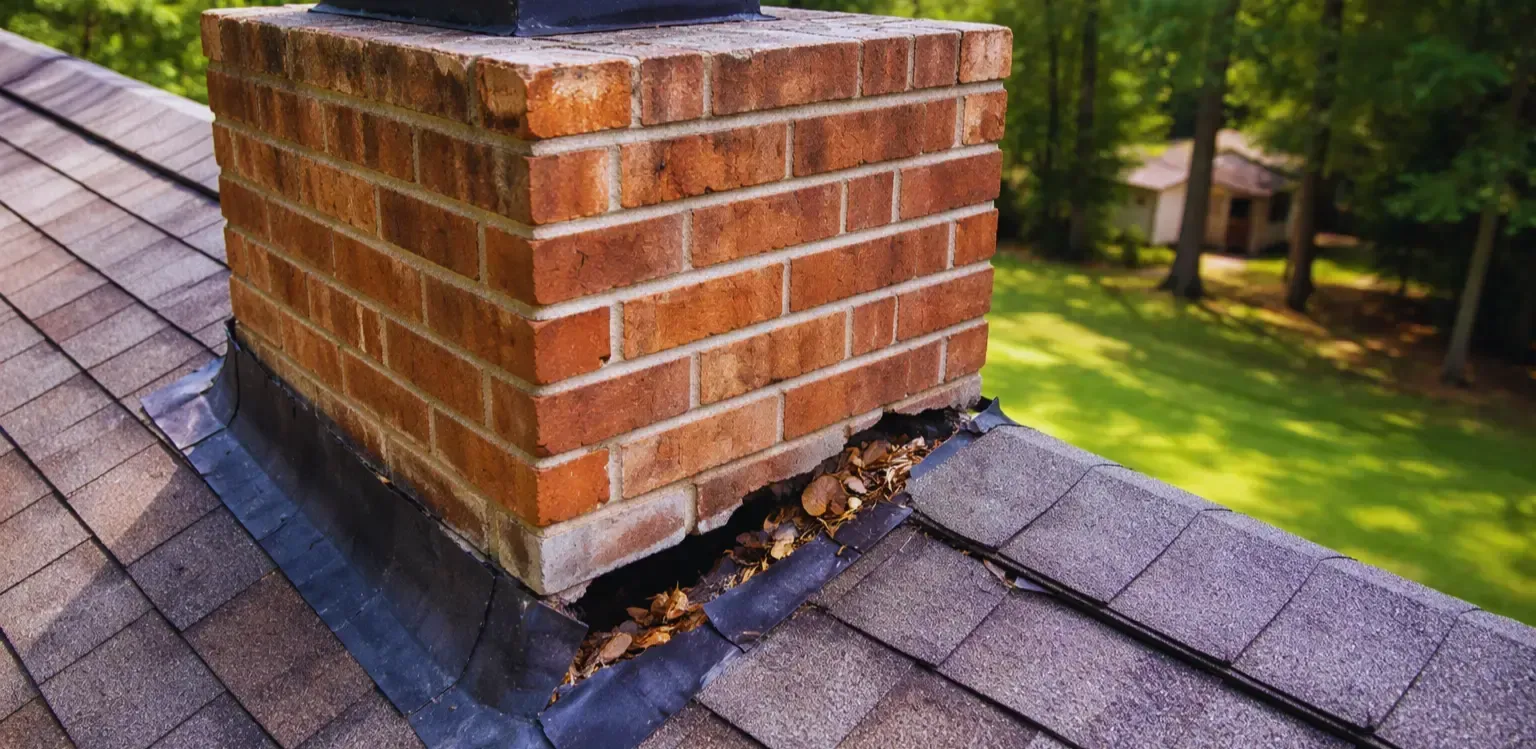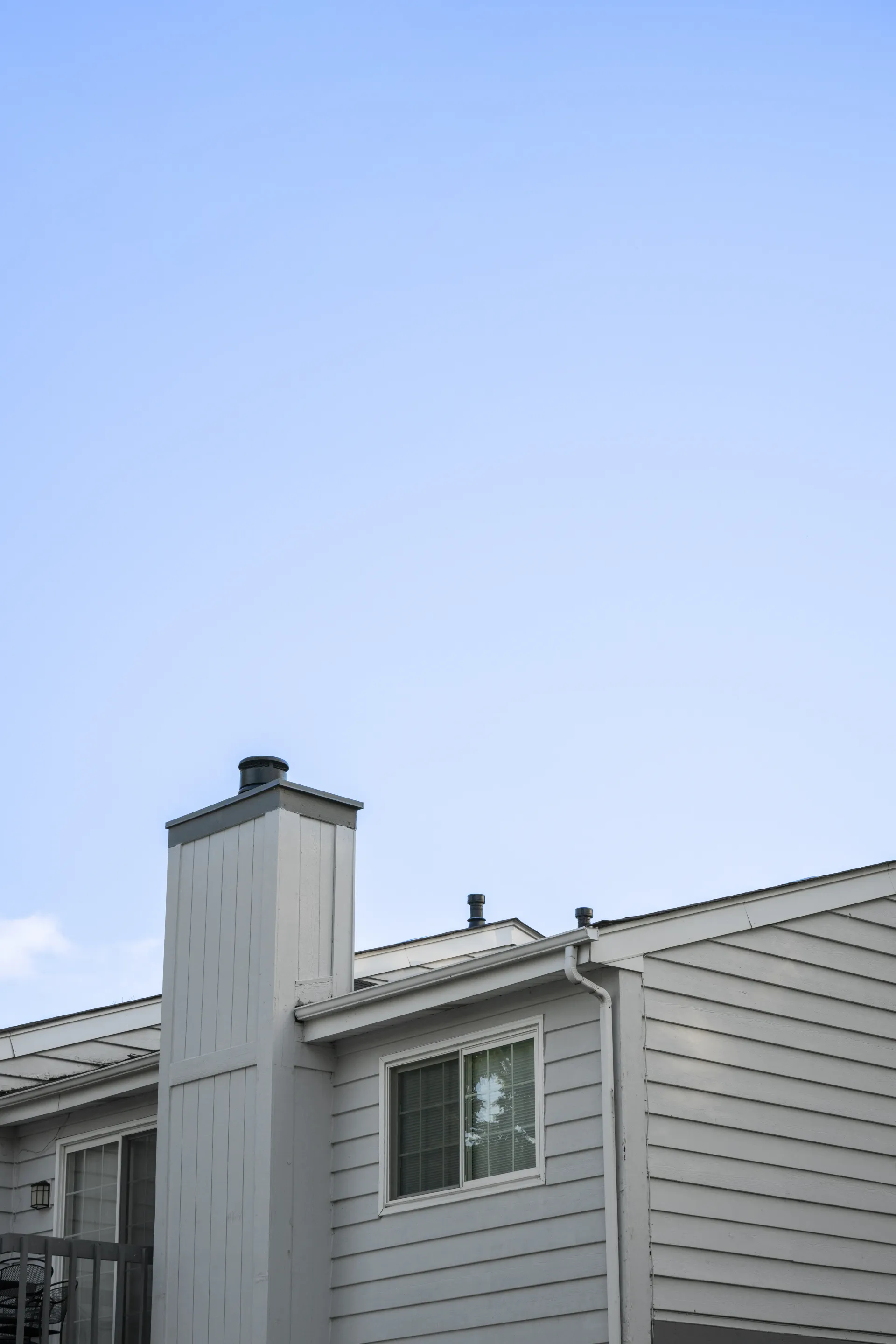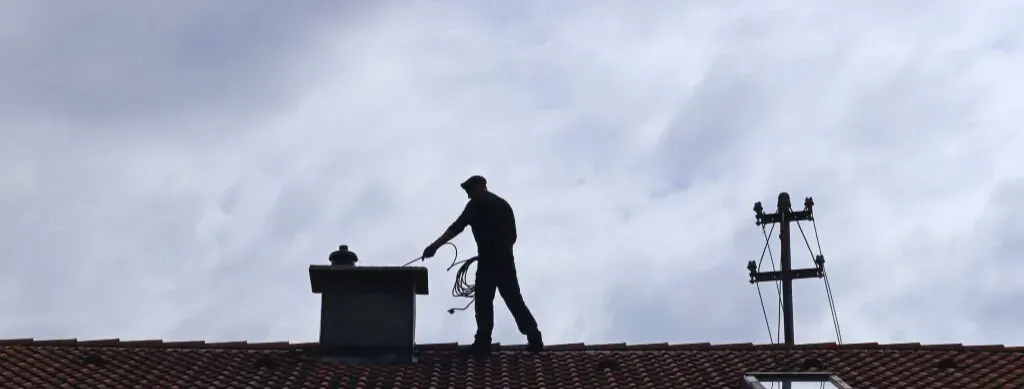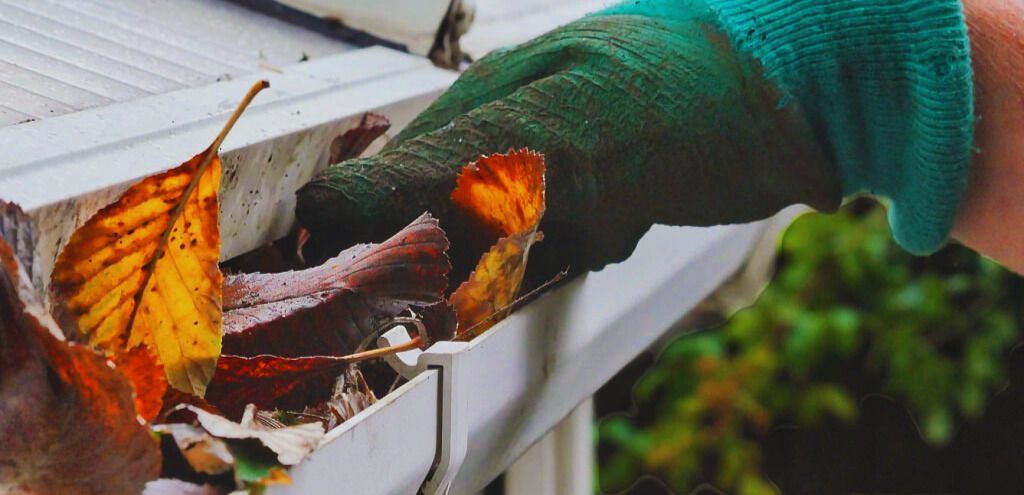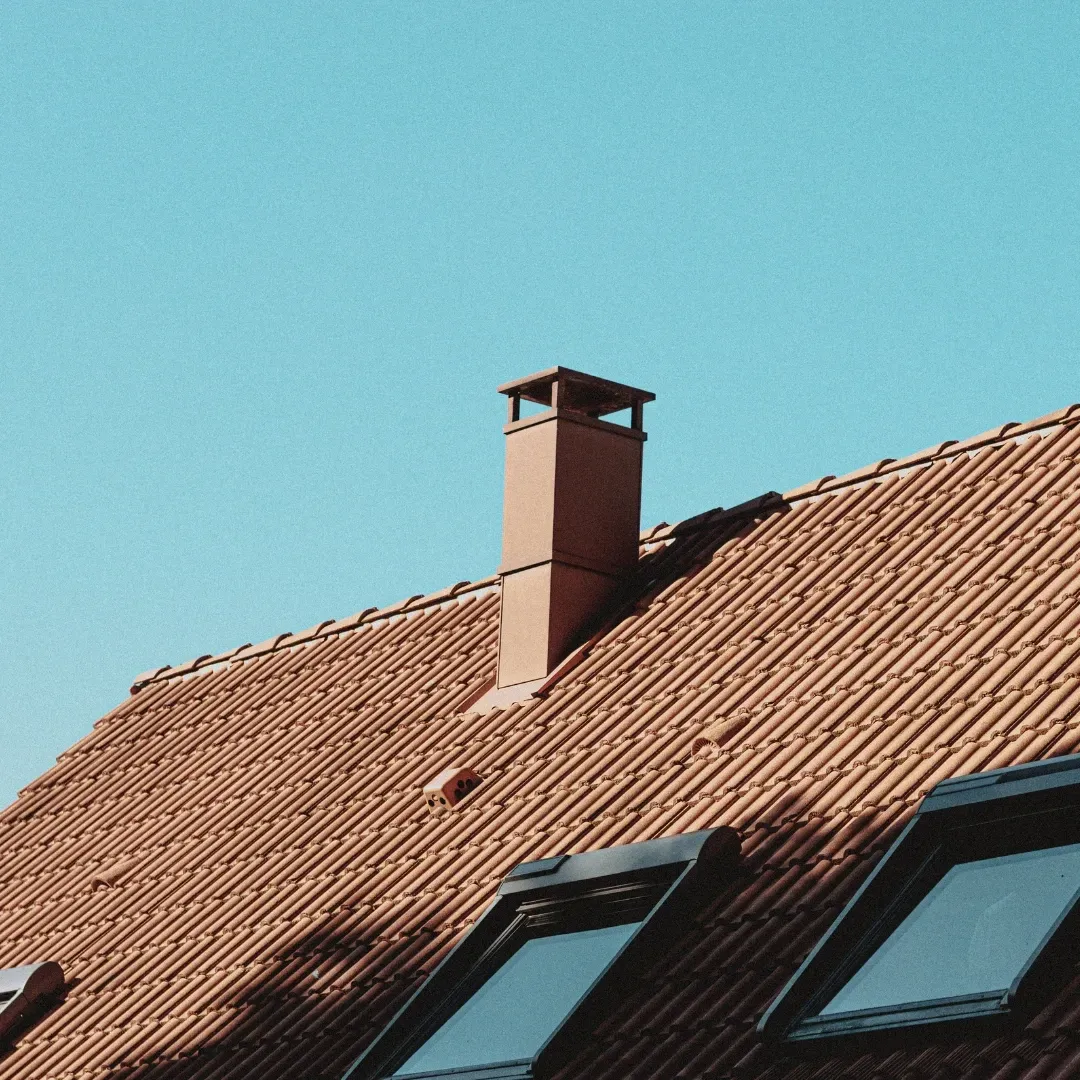Protect Your Chimney with Professional Waterproofing: A Guide for Portland Homeowners
Picture this: It's a chilly autumn evening in Portland, and you're cozied up by the fireplace, enjoying the warmth and comfort of your home. Suddenly, you notice a small puddle of water forming near the hearth. As you look up, you see telltale signs of moisture seeping through your chimney. That's when it hits you – your chimney might need waterproofing.
As a homeowner in Portland, I've learned that maintaining a chimney is crucial for the safety and integrity of our homes. In this guide, I'll walk you through everything you need to know about chimney waterproofing, from why it's essential to how to get it done right.
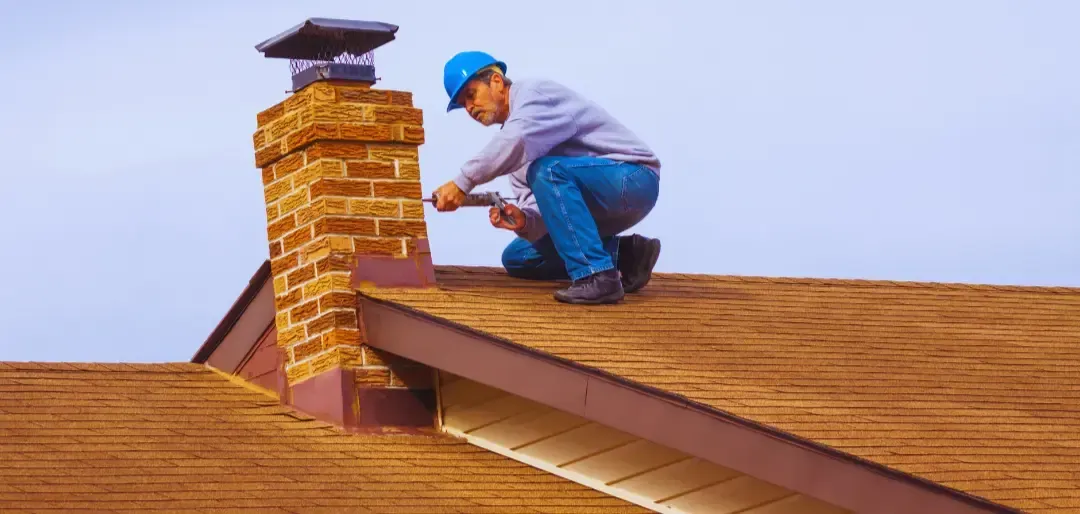
Understanding the Importance of Chimney Waterproofing
The Rainy Reality of Portland
Living in Portland, we're no strangers to rain. Our city sees an average of 43 inches of rainfall annually, which is significantly higher than the national average. This constant exposure to moisture can take a toll on our homes, especially our chimneys.
How Water Damages Your Chimney
Water is sneaky. It can find its way into the tiniest cracks and crevices of your chimney, causing a whole host of problems:
- Brick deterioration
- Mortar joint erosion
- Rusting of metal components
- Interior water damage
- Mold and mildew growth
Left unchecked, these issues can lead to costly repairs or even complete chimney replacement. That's why waterproofing is so important – it's your first line of defense against water damage.
Signs Your Chimney Needs Waterproofing
How do you know if your chimney is crying out for help? Here are some telltale signs:
Visible Moisture and Stains
- Dark patches on your chimney's exterior
- Water stains on ceilings or walls near the chimney
- Damp spots in the fireplace
Crumbling Mortar and Bricks
- Loose or falling bricks
- Gaps between bricks where mortar should be
- Pieces of mortar in your yard or fireplace
Rusting Chimney Components
- Rusty damper or firebox
- Corroded chimney cap
- Stained flashing around the chimney base
If you notice any of these signs, it's time to consider waterproofing your chimney. Don't wait until the damage becomes severe – early intervention can save you a lot of headaches (and money) down the road.
The Waterproofing Process Explained
Now that you understand why waterproofing is crucial, let's dive into how it's done. The process typically involves three main steps:
Initial Inspection and Assessment
Before any work begins, a professional chimney service will thoroughly inspect your chimney. They'll look for existing damage, assess the overall condition, and determine the best waterproofing approach for your specific situation.
Cleaning and Preparation
Next, the chimney will be cleaned to remove any soot, creosote, or debris. This step is crucial because waterproofing products need a clean surface to adhere properly. If there are any minor repairs needed, like filling small cracks or replacing a few bricks, this is when it'll be done.
Application of Waterproofing Sealants
Finally, the waterproofing product is applied. Most professionals use a vapor-permeable sealant that allows the chimney to "breathe" while still repelling water. This is typically sprayed or brushed onto the exterior of the chimney, creating an invisible barrier against moisture.
Types of Waterproofing Solutions
There's no one-size-fits-all approach to chimney waterproofing. Depending on your chimney's condition and needs, different solutions might be recommended:
Stainless Steel Chimney Liners
Benefits of Stainless Steel Liners
Stainless steel liners are a popular choice for several reasons:
- Durability: They can last for decades with proper maintenance
- Corrosion resistance: They stand up well to moisture and acidic flue gases
- Improved efficiency: They can enhance your fireplace's performance
Installation Process
Installing a stainless steel liner involves:
- Measuring the chimney flue
- Inserting the liner from the top of the chimney
- Connecting it to the fireplace or stove
- Sealing all connections
While it's a bit more involved than other waterproofing methods, a stainless steel liner can provide excellent long-term protection for your chimney.
Chimney Caps and Crowns
Chimney caps and crowns are your chimney's first line of defense against water. A well-designed cap keeps rain from falling directly into the flue, while a properly constructed crown sheds water away from the chimney structure.
Flashing Repair and Replacement
Flashing is the metal sheeting that seals the gap between your roof and chimney. If it's damaged or improperly installed, water can seep in and cause significant damage. Repairing or replacing faulty flashing is often a crucial part of the waterproofing process.
DIY vs. Professional Waterproofing
As a handy homeowner, you might be tempted to tackle chimney waterproofing yourself. But before you climb up on that roof, consider the following:
The Risks of DIY Chimney Work
- Safety concerns: Working on a roof or tall chimney can be dangerous
- Incorrect application: Using the wrong products or techniques can do more harm than good
- Missed problems: You might overlook underlying issues that a professional would catch
Why Hire a Professional Chimney Service
When it comes to chimney waterproofing, I always recommend calling in the experts. Here's why:
- Expertise: They know the best products and techniques for our Portland climate
- Comprehensive service: They can handle any necessary repairs along with the waterproofing
- Safety: They have the right equipment and training to work safely on your roof
- Peace of mind: Professional work often comes with warranties and guarantees
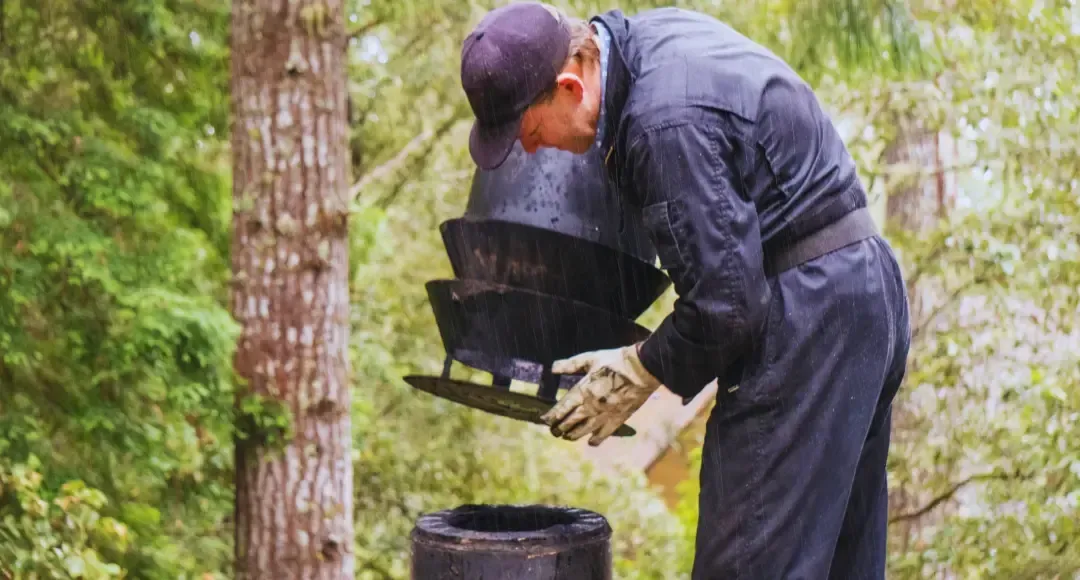
Maintaining Your Waterproofed Chimney
Once your chimney is waterproofed, you'll want to keep it in top shape. Here's how:
Regular Inspections
I make it a point to have my chimney inspected annually. This allows me to catch any issues early before they become major problems.
Cleaning and Upkeep
Regular chimney sweeping not only keeps your fireplace functioning efficiently but also gives you (or your chimney sweep) a chance to spot any developing issues.
When Waterproofing Isn't Enough: Demolition and Tuckpointing
Sometimes, water damage is so severe that simple waterproofing isn't enough. In these cases, more extensive work might be needed.
Understanding Tuckpointing
Tuckpointing is the process of repairing mortar joints in brickwork. It involves removing damaged mortar and replacing it with fresh mortar. This not only improves the look of your chimney but also restores its structural integrity.
The Demolition and Rebuilding Process
In extreme cases, parts of the chimney might need to be demolished and rebuilt. This is a complex process that should only be handled by experienced professionals. It typically involves:
- Careful demolition of damaged sections
- Rebuilding using new bricks and mortar
- Ensuring proper alignment and structural integrity
- Applying waterproofing measures to prevent future damage
Choosing the Right Chimney Service in Portland
With so many chimney services in Portland, how do you choose the right one? Here are some tips:
What to Look for in a Professional
- Proper licensing and insurance
- Experience with Portland's specific climate challenges
- Positive reviews and references
- Membership in professional organizations like the Chimney Safety Institute of America (CSIA)
Questions to Ask Before Hiring
- How long have you been in business?
- Are your technicians certified?
- Do you provide written estimates?
- What waterproofing products do you use?
- Do you offer any guarantees on your work?
Cost Considerations for Chimney Waterproofing
Waterproofing your chimney is an investment in your home's longevity. Here's what you need to know about the costs:
Factors Affecting Price
- Size and height of your chimney
- Current condition and necessary repairs
- Type of waterproofing solution chosen
- Accessibility of your roof and chimney
Long-term Savings
While the upfront cost might seem high, consider the long-term savings:
- Avoided water damage repairs
- Extended lifespan of your chimney
- Improved energy efficiency
- Increased home value
Conclusion: Protecting Your Home, One Brick at a Time
Waterproofing your chimney might not be the most glamorous home improvement project, but it's one of the most important for us Portland homeowners. By taking proactive steps to protect your chimney from our rainy climate, you're safeguarding your entire home.
Remember, a well-maintained chimney isn't just about keeping water out – it's about keeping your family safe, your home warm, and those cozy fireplace evenings worry-free. So don't wait for the first signs of water damage. Reach out to a professional chimney service today and give your chimney the protection it deserves.
After all, in Portland, we know that preparation is key. Just as we don't leave the house without an umbrella, we shouldn't leave our chimneys without proper waterproofing. It's all part of embracing and thriving in our beautiful, rain-soaked city.
FAQs About Chimney Waterproofing
- How often should I have my chimney waterproofed? Most experts recommend re-applying waterproofing treatments every 5-10 years, depending on your chimney's exposure and the product used.
- Can I use my fireplace immediately after waterproofing? It's best to wait at least 24 hours after waterproofing before using your fireplace to allow the product to fully cure.
- Will waterproofing change the appearance of my chimney? Quality waterproofing products are typically clear and won't alter the look of your brickwork.
- Is chimney waterproofing covered by homeowners insurance? Generally, preventive maintenance like waterproofing isn't covered by insurance, but damage caused by a leaking chimney might be. Check your specific policy for details.
- Can waterproofing fix existing leaks? Waterproofing can prevent future leaks, but existing damage will need to be repaired first. A professional can assess and address any current issues before applying waterproofing.
Remember, for all your chimney needs in Portland, don't hesitate to reach out to a professional service. Whether you need an inspection, waterproofing, or more extensive repairs, the experts at Select Chimney Services are here to help. You can learn more about our comprehensive chimney services or contact us to schedule an appointment. We're committed to keeping Portland's chimneys safe, dry, and functioning perfectly, no matter what weather comes our way.
